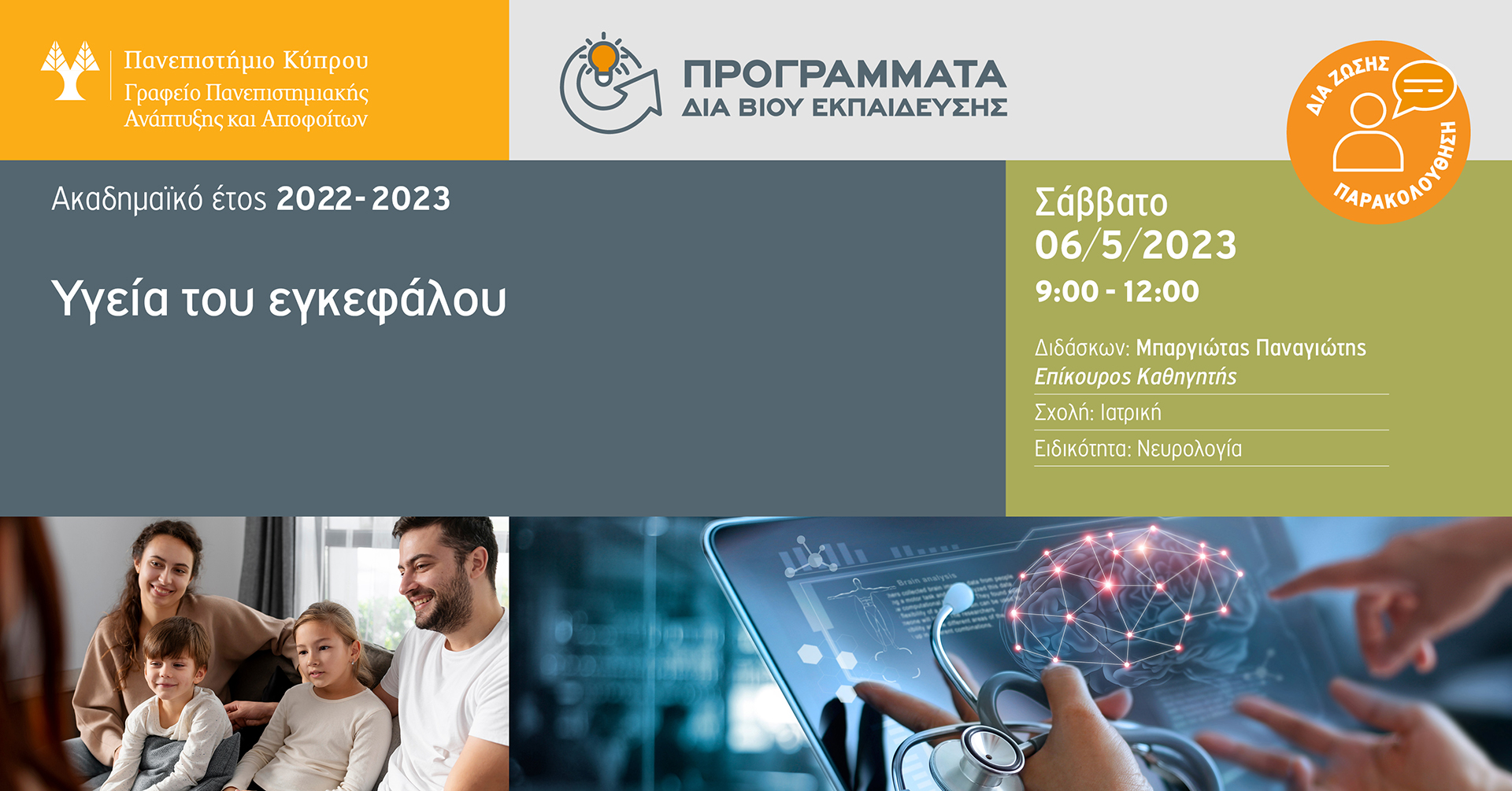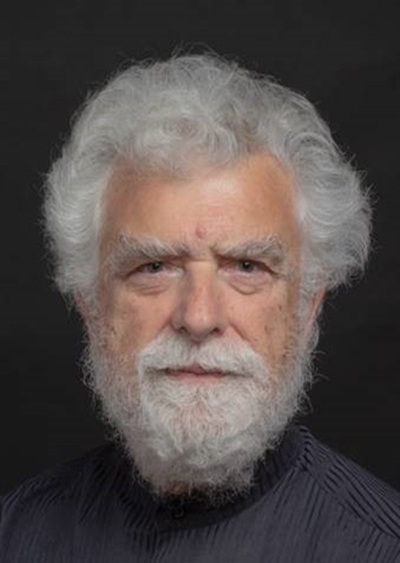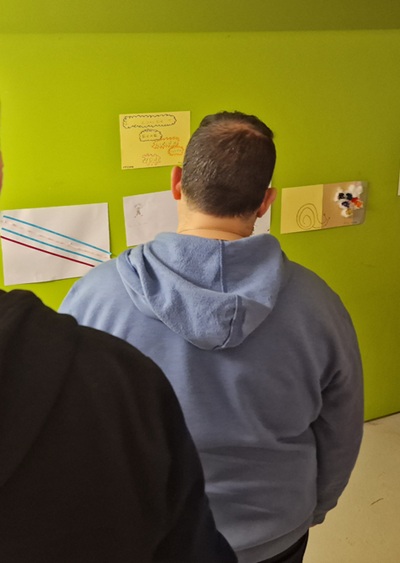
The 20th century was marked by a tremendous advance in the understanding of how the brain functions and its key role throughout a person’s life. Good brain health allows the individual to realize their own abilities and optimize their cognitive, emotional, psychological/behavioral, and motor skills to cope with life situations. Numerous interconnected social and biological factors (including genetic) play a role in brain development and brain health from pre-conception status to the end of human life.
The seminar is addressed to individuals of any educational level, as it approaches, in a popular discourse and way, the multi-level implications of medicine and brain health in areas such as sociology, psychology, law, ethics, etc. In this way, the seminar aims to be a pillar of awareness and information regarding: 1) the role of modern, state-of-the-art technology in the understanding of normal brain function; and 2) the very serious impact that brain diseases have on people and society, the health system, and the economy.
Rapporteur: Dr. Panagiotis Bargiotas, assistant professor at the Medical School of the University of Cyprus

Panagiotis Bargiotas is a neurologist specializing in sleep disorders and movement disorders, and since 2019, he has worked as an assistant professor of neurology at the Medical School of the University of Cyprus. After his basic studies in medicine at the Aristotle University of Thessaloniki, he completed his doctoral studies at the Department of Clinical Neurobiology of the University of Heidelberg, Germany, and later the medical specialty of Neurology at the same university. He then specialized and worked as a researcher and senior curator at the University Hospital and University of Bern, Switzerland (departments of gerontopsychiatry and neurology).
The main object of his research activity is the neurophysiological investigation of sleep-wakefulness disorders and the study of cognitive and emotional changes in neurodegenerative diseases (diseases of degeneration of the nervous system), as well as in normal old age. At the same time, the recording and analysis of the sociological, philosophical, and ethical implications of neurodegeneration and, by extension, brain dysfunction are fixed goals and tools of his research methodology.
Program Duration: 8 hours
Language and way of conducting: offered in Greek and with hybrid monitoring
When: three sessions, Saturday on 6/5/2023 (9:00-12:00m.m.), 13/5/2023 (9:30-12:30m.m.), 20/5/2023
(9: 00-12: 00m.m.)
Who can attend: Everyone (graduates and non-graduates) is welcome to attend.
Records: www.ucy.ac.cy/lifelong-learning







Leave A Comment